By Jolee Keplinger (C’20) | Principia Center for Sustainability
Defining Local
The specific number of miles traveled by food to count as being “local” varies. The definition adopted by the U.S. Congress considers local food to have traveled less than 400 miles from its origin, or be from the state it was produced. The more common definition of local food means it was grown within 100 miles or within the state.
Local Focus: Principia College
I will start this local food exploration from where I am living, Principia College, located on the bluffs next to the Mississippi river in Elsah, IL. Just on this 2,600 acre campus, a plethora of off-the-radar foods are scattered across the landscape. I will start this food-venture at the East Quad housing section of the campus. There, a mini apple “orchard” exists, and each fall, the trees are abounding with apples.
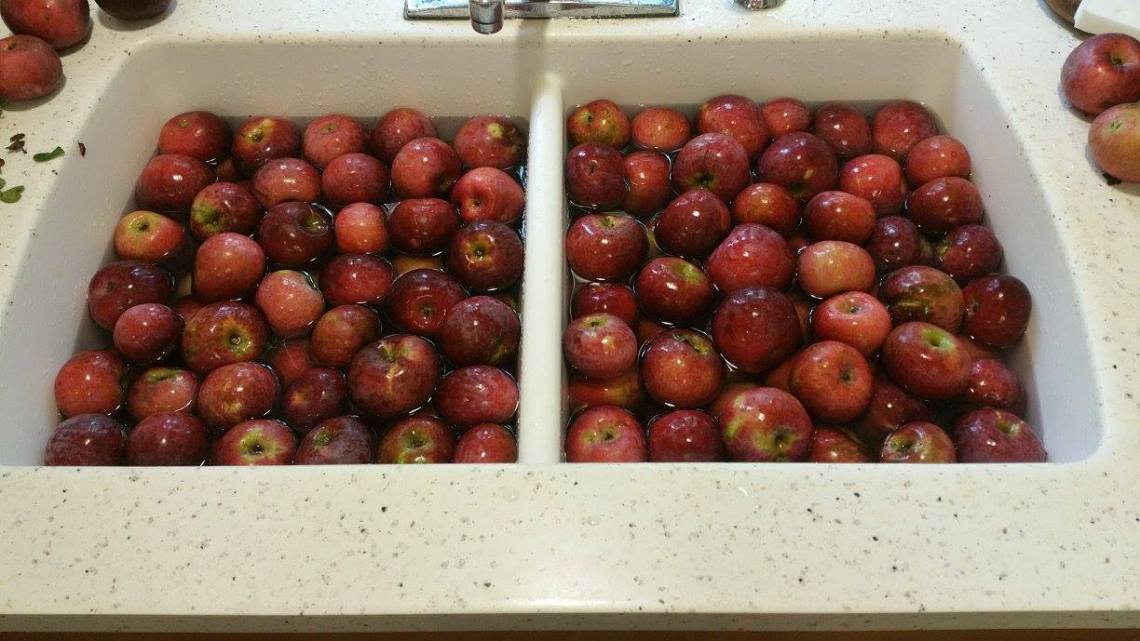
Most students walk by these trees without giving them a second thought. I used to be one of those students, but last year, my perspective changed when I participated in the sustainability club’s apple sauce workshop during the fall of 2018.
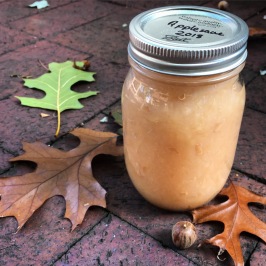
I was amazed at how under-appreciated the apples were, and at the potential to create a variety of apple products right on campus. It’s too bad these apples aren’t incorporated into the campus’s dining services. Instead, industrially grown apples are shipped in from many miles away, and their origin is not communicated to us.
Fortunately, an aspect of the campus that’s being utilized are the sugar maple trees. A biology course called Sugarbush focuses on making maple syrup during the spring semester.
The students create products using the maple syrup, and sell them in the campus’s store. This example demonstrates how local food is so accessable.
Sadly, if you go to get pancakes for breakfast, the maple syrup is not campus-grown due to its high value and limited quantity. Instead, you’ll find an artificial version shipped in from many miles away.
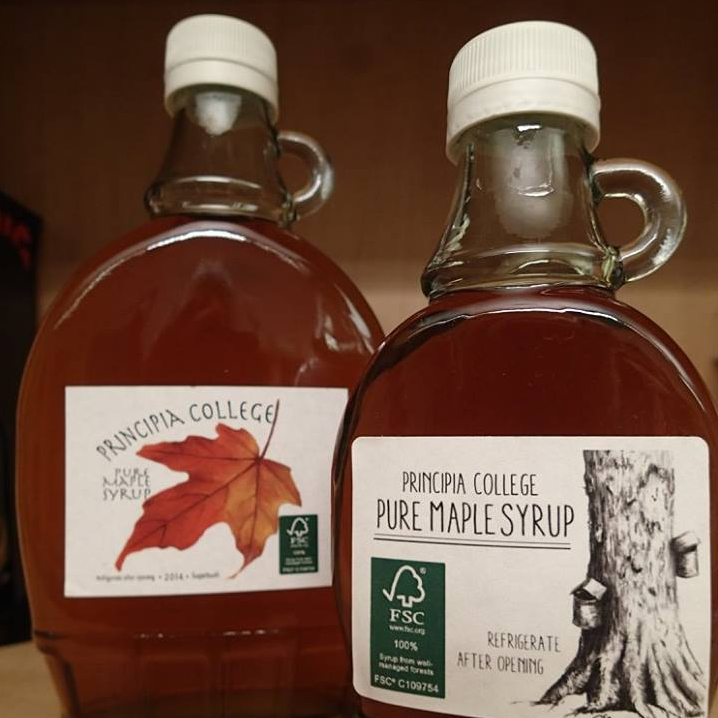
Fun fact: Principia’s maple syrup is FSC certified. Products labeled with this certification come from responsibly managed forests that provide environmental, social and economic benefits!
90% of proceeds benefit Principia’s Land Stewardship program.
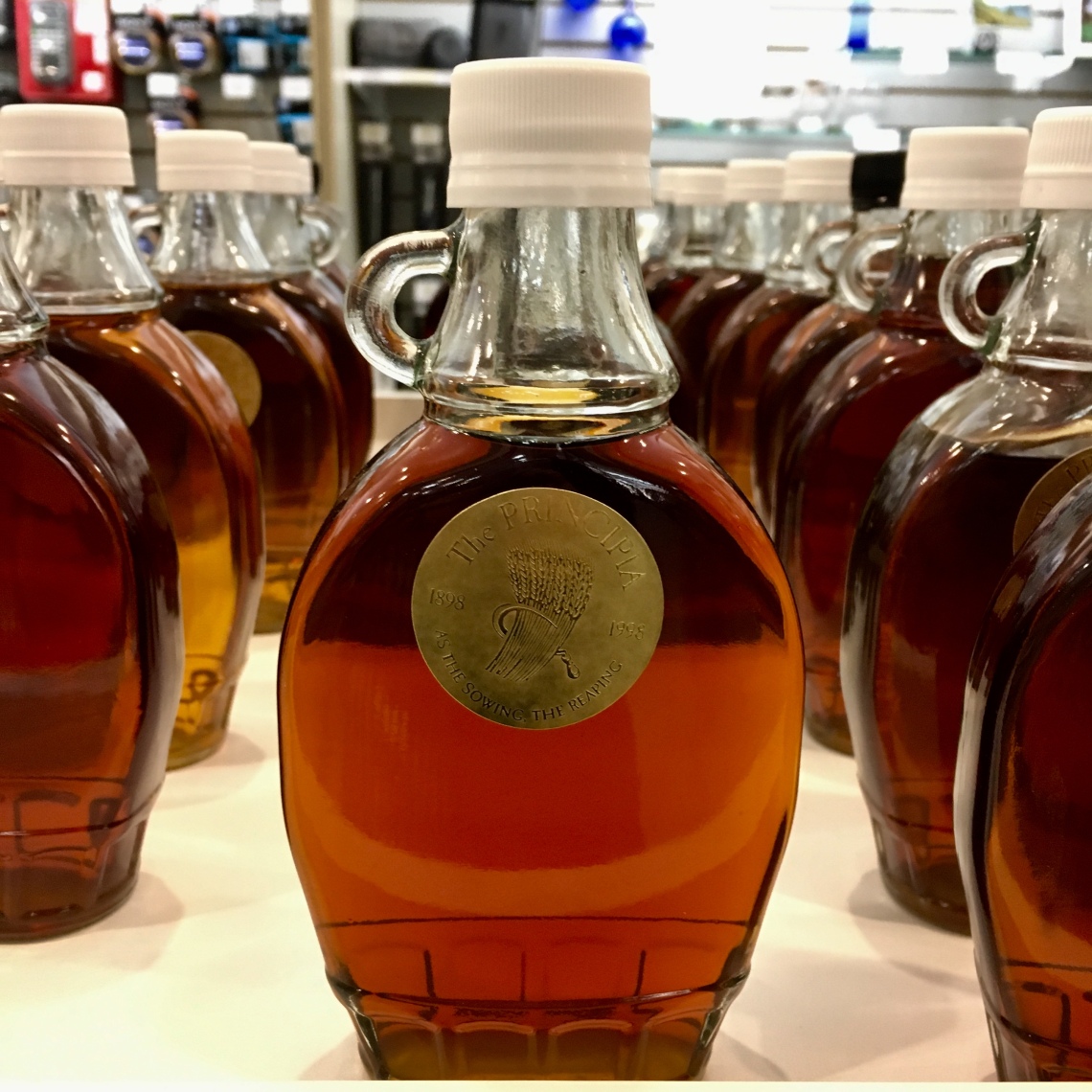
Value added products, made by students enrolled in the maple syrup making course, will be for sale in the C-Store as well. For example, sweets such as cake pops, rice crispy treats, maple bark, and popsicles graced the shelves last year.

Next to the sugar shack (where the syrup is boiled) lies a community garden, which is currently being revitalized.
The Science Center, which is located next to the garden, is contributing to the campus’s local food production as well. Part of this building’s roof has been transformed into a garden. There, kale, cabbage, leeks, romaine lettuce, and a variety of herbs are being grown, (and sunflowers are coming soon). Evidence of the campus’s potential to self-sustain itself is the student/faculty-run victory garden during World War II. This demonstrates that with an urgent event, and call to action, things can be accomplished.
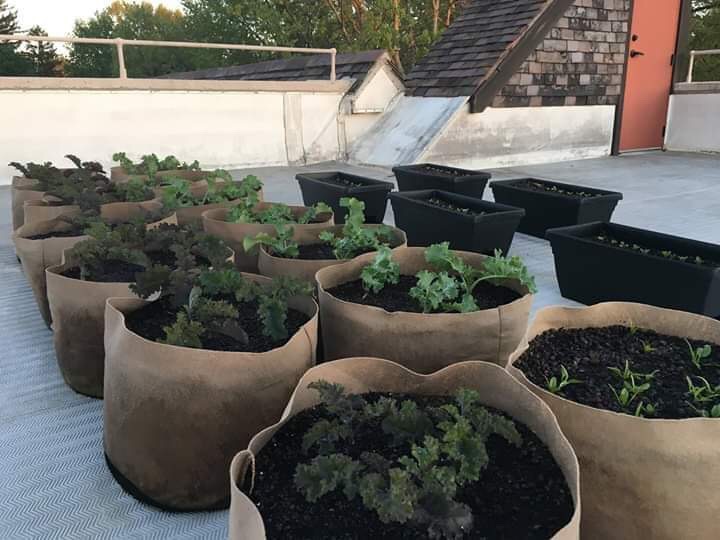
Rooftop gardens, also known as green roofs, provide many benefits. The most obvious one is the availability of fresh, nutrient-dense, and local food, which can be grown with organic principles. Additionally, rooftop gardens can lead to community building, reduce energy costs, and even provide habitats for native pollinators, which play an essential role in local food production.
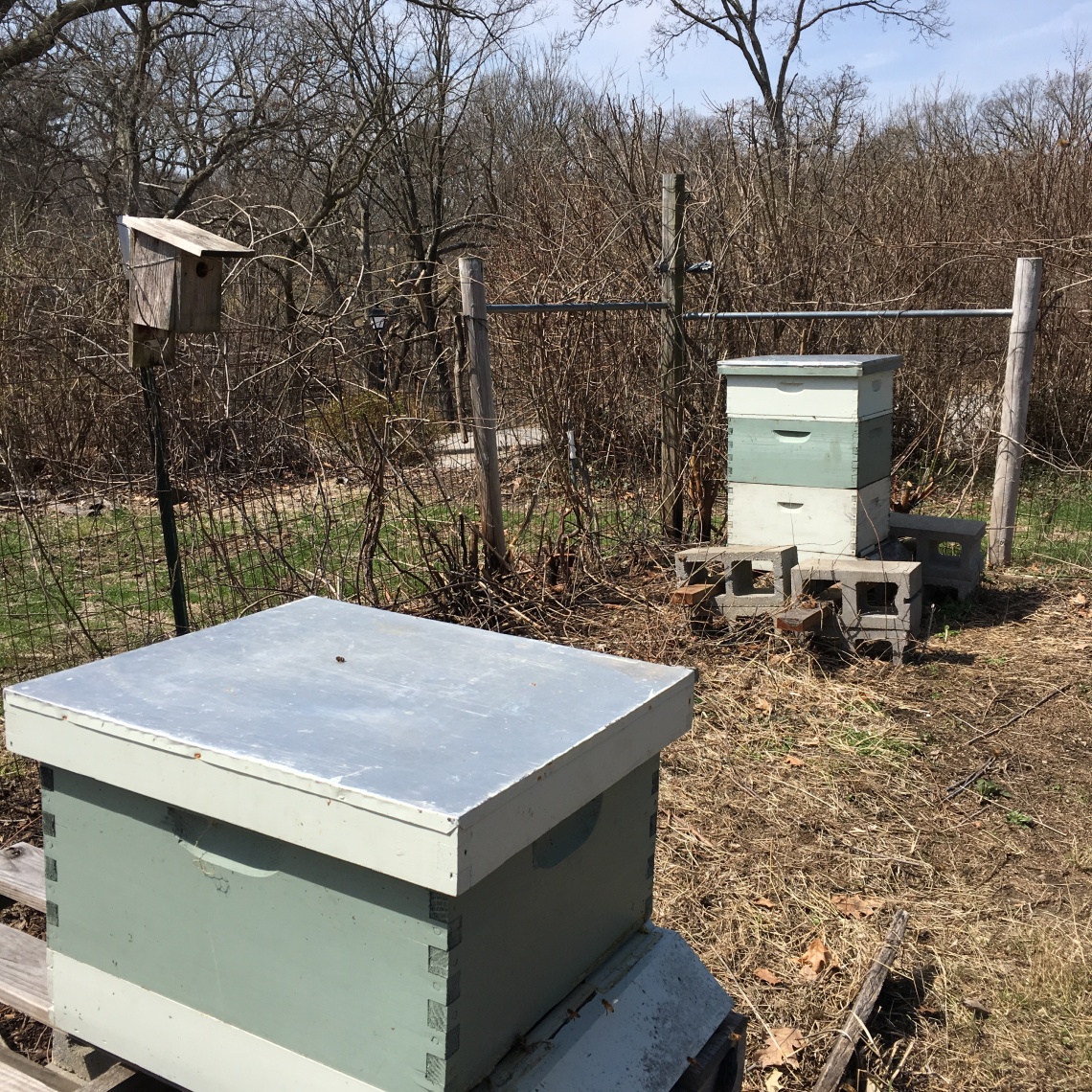
The beekeeping program, a subset of the Sustainability Club, manages bee boxes, which have successfully produced honey.
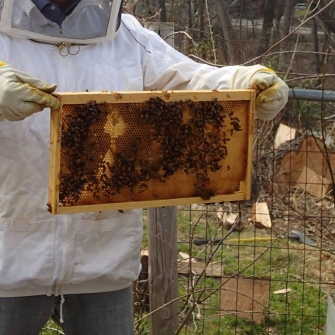
This is exhibited during Sustainability Weekend each year. Samples of honey are offered to anyone walking through the Concourse.
As you walk through the concourse, you can enter the central food area, known as the Scramble Room. There, locally grown products are not the norm.
If you continue walking though, you’ll arrive at the campus’s convenience store, known as the C-Store. There you can find local specialties such as Fitz’s soda, which is hand-crated in St. Louis.

Even though the campus has the ability to produce a variety of foods, this utopian campus food system isn’t being achieved due to logistical factors, such as high turnover rate of student residents, apathy regarding the origin of one’s food, and our have-it-all, fast-paced, globalized culture.
The average person to expects to have 24/7 access to a variety of foods which of course, cannot all be grown locally and sustainably.
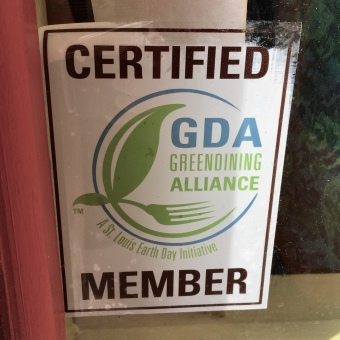
On a positive note, the campus’s Dining Services has a five star rating from the Green Dining Alliance. This St. Louis-based program rates restaurants in terms of water and energy conservation, food sourcing, recycling and waste reduction, awareness, innovation, and chemical use.
In each category, Principia has scored at least four stars, except for the “sourcing” category. This highlights the fact that sourcing local and sustainable food has plenty of room for improvement.
For example, one product which happens to be manufactured semi-locally is the Beyond Burger.
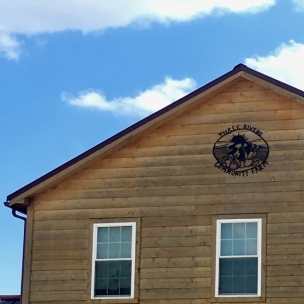
Fortunately, progress is being made. As Principia’s Dining Services Liaison officer for the Sustainability Department, one of my projects last semester was integrating local produce from a Three Rivers Community Farm. This small, family-run farm, which grows all its produce with organic principles, is less than a five minute drive from campus. (Fun fact: the land is actually being leased from Principia.) I thought it was important to utilize this local food source which lies in our backyard. I took action by setting up a meeting which included our chef, the director of the Sustainability department, and the owner of the farm. The meeting was a success, and resulted in a partnership with the farm. Fresh, local produce can be expected to become integrated into Principia’s Dining Services starting in the fall semester of 2019!
Final Words
Today, what’s needed is community awareness regarding the current, unsustainable-state of the U.S. food system, and individuals who are passionate about igniting change. Everyone eats, and everyone wants to eat in the future. For this to be possible, we must transition from the current too-good-to-be-true depleting global industrial food system, to once that’s local, place-based, and not just sustainable, but regenerative.

Even though Principia’s campus-grown food is a step in the right direction, the intentions seem to be academic research, Sustainability Club activity, or project-based. There is much progress to be made considering the multitude of possibilities that exist on a rural 2,600 acre campus.